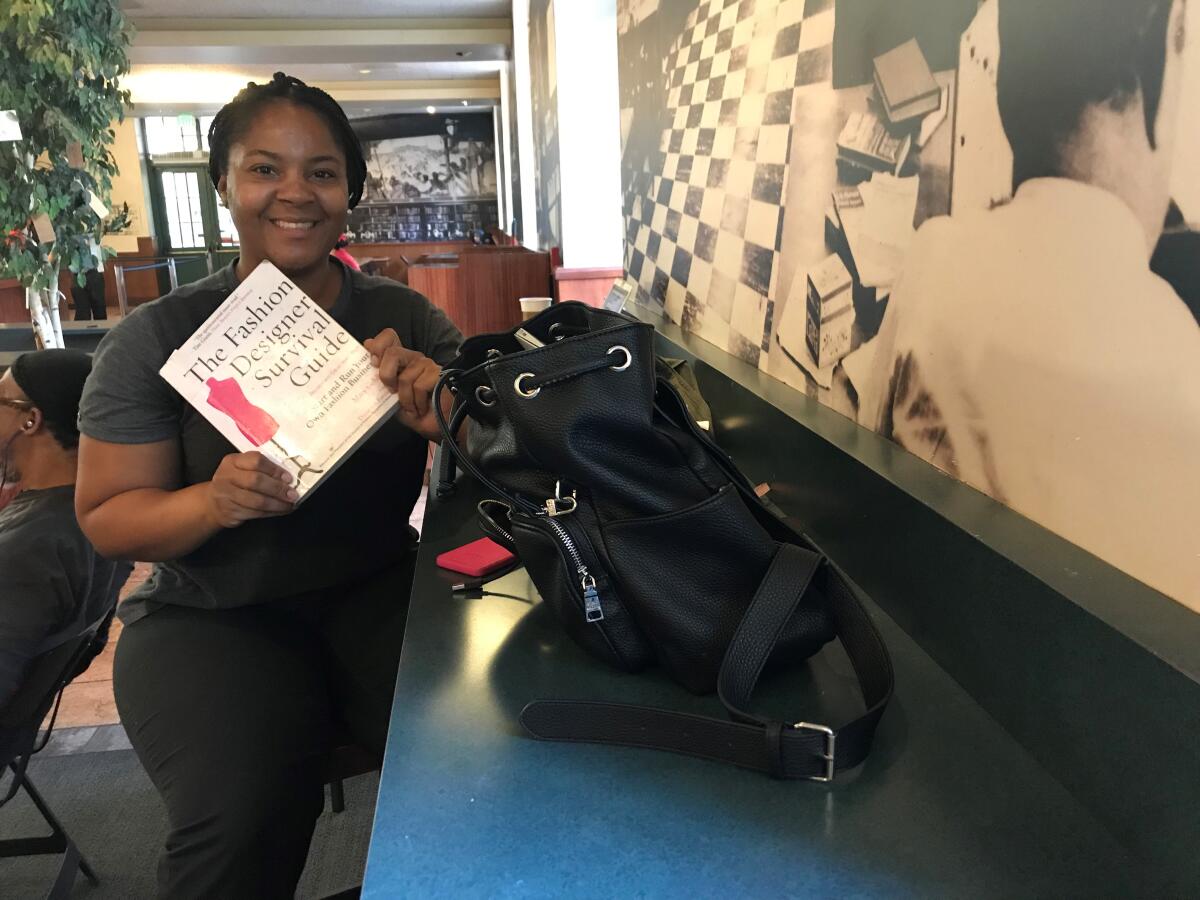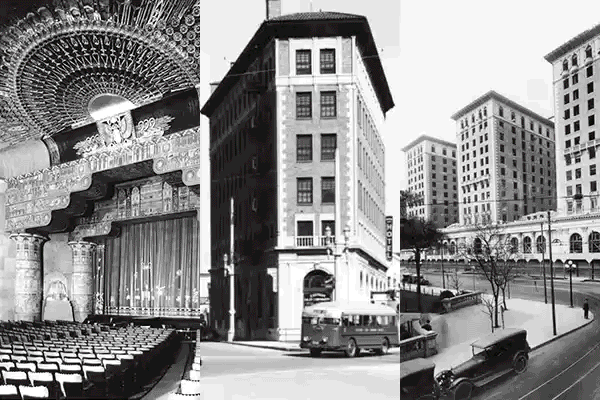L.A. libraries will stop collecting late fees for overdue books and other materials

For Angelenos, the days of stressing out over an overdue library book are mostly coming to an end.
Mayor Eric Garcetti announced Friday that the city will stop collecting fines for past-due books and other materials this spring, part of a larger effort to make the 73-branch library system more welcoming to the city’s neediest residents.
Garcetti said too many families are so worried about the possibility of financial penalties that they avoid taking advantage of the books, recordings and other materials that are lent for free.
“The burden of the fines placed on Angelenos is significant — for students, for families who don’t have a lot of spending money, for seniors on a fixed income,” Garcetti said during a news conference at L.A.’s downtown Central Library. “Library fines can be a barrier to tapping into all the incredible resources that we have here in our libraries.”
L.A. is following the lead of library systems in scores of other cities, including San Diego, Chicago, Denver, Salt Lake City, San Francisco and Oakland, according to a report prepared for the Board of Library Commissioners, whose members are appointed by Garcetti.
Under the current system, L.A. library patrons are charged 35 cents a day for books, magazines and audio books kept past their due date and 15 cents a day for overdue children’s materials. Past-due DVDs currently result in fines of $1 per day.
The city will also stop charging a $10 fine to patrons who lose library materials, but continue seeking reimbursement for the full cost of replacing lost items.

Friday’s announcement was welcome news to Tanisha Hicks, who lives in South Los Angeles and is a frequent library patron. Hicks, who currently works at McDonald’s, recently borrowed “The Fashion Designer Survival Guide” and is planning to come out with her own line of clothing.
“I’m so busy sometimes, and sometimes I can’t get to the library in time to return a book. I worry about the fines being charged,” said the 27-year-old, who has also electronically borrowed Amber Rae’s “Choose Wonder Over Worry.”
L.A.’s practice of collecting late fees goes back well over a century. Mary Foy, who served as city librarian during the early 1880s, collected overdue fine revenue aggressively, depositing the money in a leather purse slung across her chest, according to “The Library Book,” the 2018 bestseller that explored the history of the 1986 fire that shut down the Central Library for several years.
Susan Orlean, author of “The Library Book,” said libraries are an institution whose primary mission is inclusiveness. The push to eliminate fines is part of a national trend, with librarians taking new steps to ensure that money is not an obstacle for their patrons, she said.
“We’ve moved more and more toward this environment in which the library is made to be as free as possible,” Orlean said.
In L.A., the elimination of late fees is part of a larger push by the Garcetti administration to expand access to library materials.
Three years ago, the library gave amnesty to patrons with overdue materials, which led to the return of 64,633 overdue items and the issuance of nearly 8,000 new library cards. During that campaign, around 13,700 delinquent library users had their cards unblocked, allowing them to begin borrowing again.
Since then, city officials have worked to provide library cards to every student at the Los Angeles Unified School District, which are set up so that kids are spared from overdue book penalties.
Getting rid of the late fees systemwide was the logical next step, said library commission president Bich Ngoc Cao, a voracious reader who spent much of her childhood going to libraries in Rosemead and Monterey Park.
“This is reopening the doors of the library to people who haven’t been able to pay the fines” or have had their borrowing privileges suspended, she said.
L.A.’s sprawling library system loaned out 17.1 million items during the 2018-19 fiscal year, including e-books. Even with late fees out of the picture, library users will still face deadlines.
Once a patron has used up the three renewal periods, he or she will have 45 days to return an overdue book, said Lauren Skinner, spokeswoman for the library system. After that, the book is considered lost and in need of replacement.
The city will take a financial hit by eliminating the penalties. During the most recent budget year, fines and fees generated $1.6 million for the library system.
Garcetti argued that those funds made up a tiny share of the system’s $180.7-million annual budget. And library officials say revenue from late fees is already declining, due in large part to the rise of electronic borrowing.
More than 180 library systems across the United States have gone fine-free, said Paul Negron, spokesman for the Urban Libraries Council, an organization that serves big-city library systems. Libraries that have done so have actually seen their return rates increase, he said.
Negron contends that getting rid of fines will allow librarians to focus on their core mission of “promoting open access to information.” Eliminating penalties, he said, will also reduce friction between librarians and their patrons.
“If you eliminate that barrier, then it does spark goodwill in the community,” Negron added.
More to Read
Sign up for Essential California
The most important California stories and recommendations in your inbox every morning.
You may occasionally receive promotional content from the Los Angeles Times.











